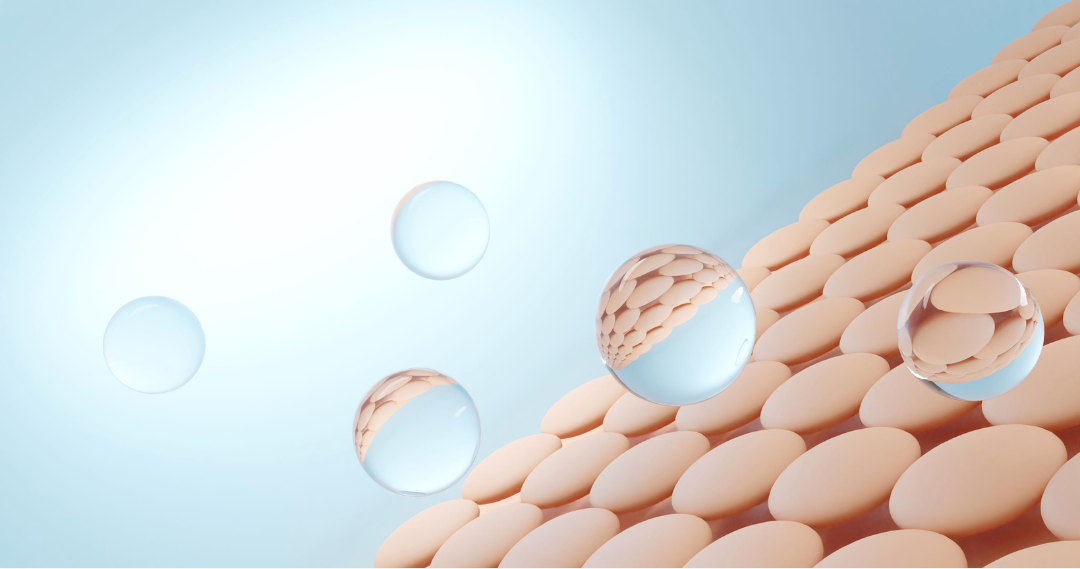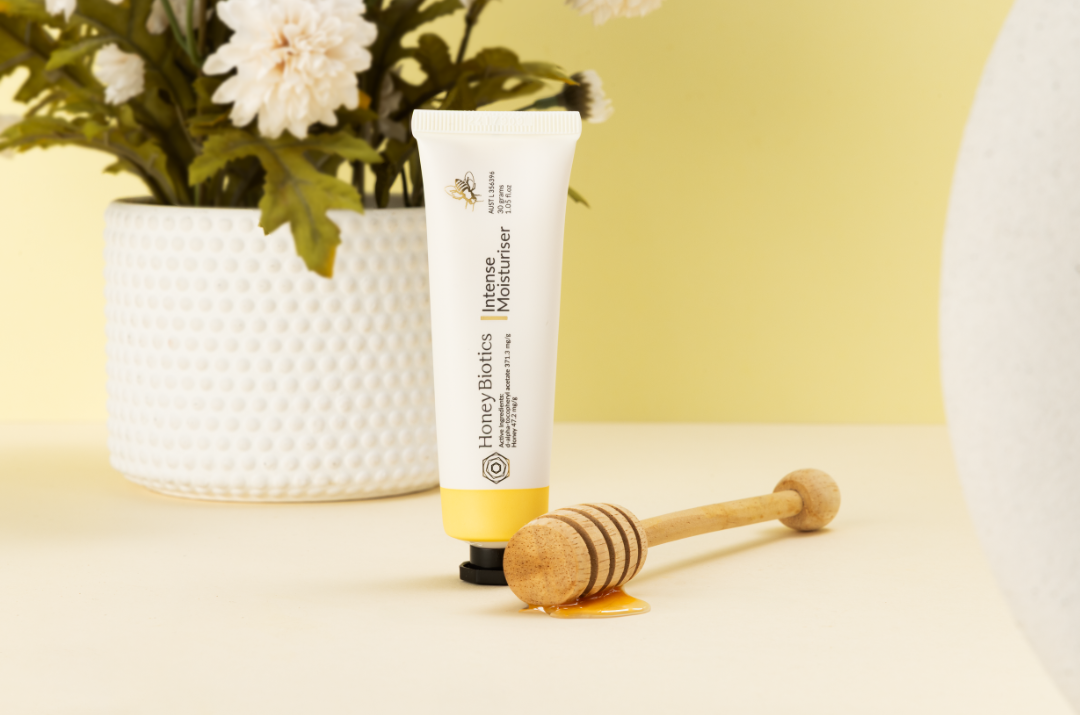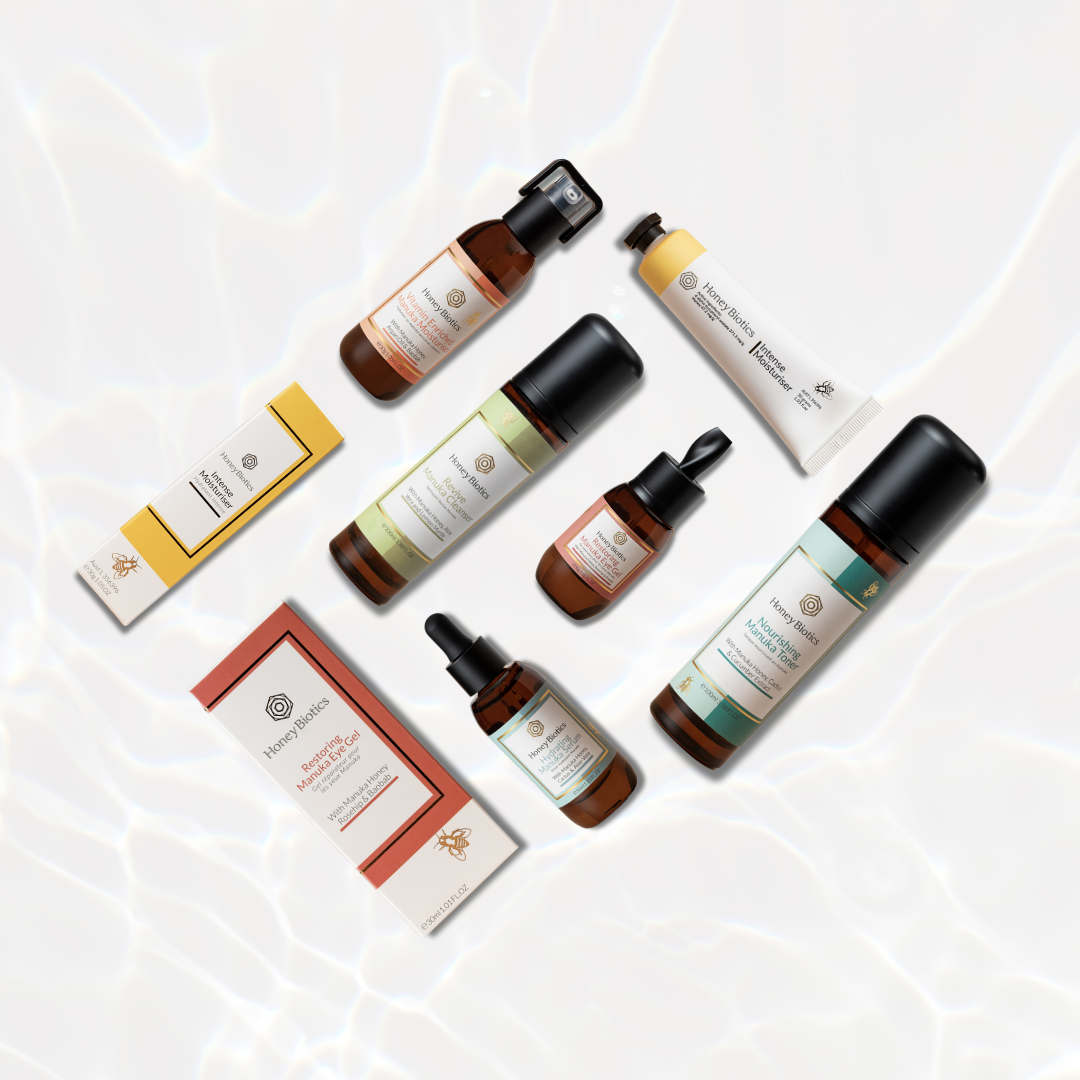Your Skin’s First Line of Defense
Ever applied your skincare only to feel an uncomfortable sting, or noticed that your once-smooth complexion now looks patchy, dull, or red?
Your skin might be sending out an SOS.
Your skin barrier is your body’s natural shield — a thin but powerful layer that keeps moisture in and irritants out. When it’s healthy, your skin feels calm and hydrated. But when it’s damaged, it can’t hold on to water or block out aggressors, leading to sensitivity, flakiness, and breakouts.
“Your skin doesn’t suddenly become sensitive — it’s your barrier crying out for rest and repair.”

What Exactly Is the Skin Barrier?
Think of your skin barrier (technically called the stratum corneum) as a brick wall. The “bricks” are your skin cells, and the “mortar” that holds them together is made up of natural lipids like ceramides, fatty acids, and cholesterol.
When this wall is strong and intact, it locks in hydration and keeps irritants, bacteria, and pollution out. But when the mortar weakens — from harsh products, stress, or environmental factors — tiny cracks appear. Moisture escapes, irritants sneak in, and your skin starts to feel dry, itchy, or overly sensitive.
How to Tell If Your Skin Barrier Is Damaged
Your skin won’t send you a notification, but it will show clear signs. Watch out for:
-
Persistent Redness or Irritation
A constant flush or burning sensation often signals inflammation beneath the surface.
-
Tightness or Stinging After Applying Skincare
If products that once felt soothing now cause discomfort, your barrier might be compromised.
-
Dryness, Flaking, or Rough Texture
Without proper lipid support, your skin can’t retain water — leading to patchiness and dullness.
-
Sudden Breakouts or Small Bumps
A weakened barrier struggles to regulate bacteria, often triggering acne-like flare-ups.
-
Increased Sensitivity
When even gentle formulas sting, it’s your skin asking for a reset.
💬 Pro tip: When your skin overreacts, don’t add more. Instead, simplify and protect.
What Damages the Skin Barrier?
Your skin barrier is surprisingly resilient — but it’s not invincible. These are the most common culprits:
-
Over-exfoliating: Too many acids or scrubs can strip natural oils and erode the barrier.
-
Harsh cleansers: Foamy or sulfate-heavy washes disrupt the skin’s natural pH balance.
-
Environmental stress: UV rays, pollution, and extreme weather all weaken barrier function.
-
Lack of moisture: Skipping moisturizers or using overly light gels leaves skin unprotected.
-
Stress and poor sleep: High cortisol slows cell turnover and makes skin more reactive.
🐝 Did you know? Stress not only affects your mood — it can disrupt your skin’s microbiome, making it harder for your barrier to stay balanced.

How to Repair a Damaged Skin Barrier
The good news: your barrier can heal. Here’s how to help it bounce back naturally.
1️. Simplify Your Routine
Cut it back to the essentials:
-
Gentle, non-stripping cleanser
-
Barrier-repairing moisturizer
-
SPF during the day
Pause active treatments like acids and retinol until your skin feels calm again.
Think of this as “skin rehab” — less stimulation, more nourishment.
2️. Choose Barrier-Friendly Ingredients
Look for formulas packed with humectants, emollients, and occlusives that restore lost lipids.

Top ingredients for repair:
-
Manuka Honey: draws in moisture and supports healing.
-
Shea Butter & Beeswax: seal hydration and strengthen the barrier.
-
Jojoba Oil & Grape Seed Extract: smooth texture and balanced oil levels.
-
Vitamin E: calms inflammation and boosts resilience.
3. Avoid Fragrance, Alcohol & Harsh Actives
Skip anything with strong scents or drying alcohols. These can irritate sensitive, healing skin and undo your progress.
4️. Hydrate from the Inside Out
Drink water, eat omega-rich foods (salmon, flaxseed, avocado), and apply moisturizers with humectants like honey or glycerin to attract hydration into the skin.
5️. Always Wear SPF
Even low UV exposure slows down your barrier’s healing. Apply a broad-spectrum sunscreen daily — indoors and out.
6️. Be Patient
Skin renewal takes time. Most barriers need 2–6 weeks of consistent care to recover fully.
Consistency beats intensity — always.
Lifestyle Habits That Strengthen Your Skin Barrier
Because healthy skin starts from within.
-
Get 7–8 hours of sleep — your skin repairs itself overnight.
-
Reduce stress through gentle routines like breathing exercises or tea rituals.
-
Avoid long, hot showers — opt for lukewarm water to prevent moisture loss.
-
Eat good fats like avocado, nuts, and fish to support lipid balance.
-
Stay consistent — give your skin time to adjust to minimal, gentle care.
The Honey Biotics Way to Repair and Protect
The Honey Biotics Intense Moisturiser is designed with barrier health at its core — a rich, nourishing blend of MGO 570+ Manuka Honey, Vitamin E, Jojoba Oil, Shea Nut Butter, Beeswax, and Grape Seed Extract. Together, these natural ingredients hydrate deeply, calm irritation, and strengthen your skin’s protective layer.
With its rich texture and clean formulation, the Intense Moisturiser acts like a comfort blanket for stressed skin — sealing in moisture, softening dry patches, and protecting your barrier day and night.
Final Thoughts: Listen to Your Skin
If your skin feels irritated, dry, or suddenly reactive, don’t rush to “fix” it — listen to it.
Your skin doesn’t need more products. It needs the right ones — calm, nutrient-rich formulas that rebuild your barrier and restore harmony.
With time, patience, and a bit of honey-infused care, you’ll find your skin returning to its naturally soft, healthy glow.
Your skin doesn’t need perfection — it needs protection.
Start with kindness. Stay consistent. Let nature and your barrier do the rest. 🌿




